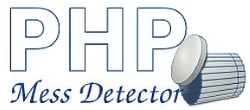PHP is a popular programming language for web development that powers a large number of websites and internet-based applications. Code quality is extremely important when working as a PHP developer. Tools for evaluating the quality of PHP code can be useful here.
Developers can find errors, spot vulnerabilities, and enforce coding standards thanks to their automated code review and analysis processes. These tools allow beginning and intermediate developers to improve their coding techniques, generate cleaner code, and ultimately raise the caliber of their PHP projects as a whole.

I will delve into the world of PHP code quality tools in this post and examine their relevance, significance, and useful applications. Additionally, I will introduce you to the best PHP code quality tools on the market and provide details on their features and functionalities. By the conclusion, you will have a thorough knowledge of these tools and how they may greatly aid in the creation of reliable and dependable PHP applications. Let's explore the top PHP code quality tools now!

Relevance of PHP
PHP has long been a cornerstone of web development, gaining popularity and widespread usage among developers worldwide. Its versatility, ease of use, and extensive community support have contributed to its enduring presence in the web development landscape.
One of the primary reasons for PHP's popularity is its ability to seamlessly integrate with various web technologies and database systems. It powers numerous content management systems (CMS) such as WordPress, Drupal, and Joomla, enabling developers to create dynamic and interactive websites with ease. Additionally, PHP boasts a vast array of frameworks, including Laravel, Symfony, and CodeIgniter, which streamline the development process and promote code reusability.
With the immense adoption of PHP in web development, it becomes crucial to prioritize the quality of the PHP code itself. Efficient and well-structured PHP code ensures optimal performance, maintainability, and scalability of web applications. It minimizes the risk of errors, enhances code readability, and facilitates collaboration among developers working on the same project.
By adhering to coding best practices and leveraging PHP code quality tools, developers can ensure that their code meets industry standards, follows coding conventions, and avoids common pitfalls. This not only improves the overall quality of the PHP codebase but also contributes to faster development cycles, easier debugging, and reduced maintenance efforts.
In the next sections, we will explore the significance of code review and analysis, as well as the role of code quality tools in maintaining the integrity of PHP code.
PHP code quality tools
Code quality tools are software applications or libraries specifically designed to analyze, review, and assess the quality of code. These tools automate the process of code inspection, providing developers with valuable insights, recommendations, and metrics to improve the overall quality, maintainability, and efficiency of their codebase.
In PHP development, code quality tools play a crucial role in ensuring that the code adheres to established coding standards, follows best practices, and meets the requirements of a high-quality PHP application. These tools can detect various types of issues, ranging from simple syntax errors to complex architectural problems, security vulnerabilities, and performance bottlenecks.
I have summarized the benefits of these tools as follows:
Code Analysis: Code quality tools perform static analysis of PHP code, scanning the entire codebase or specific files to identify potential issues. They examine the code structure, syntax, and semantics, checking for errors, inconsistencies, and non-compliance with coding standards.
Automated Testing: Code quality tools often integrate with testing frameworks to facilitate automated testing. They can execute unit tests, integration tests, and other types of tests, providing feedback on test coverage, assertion failures, and overall code reliability.
Code Style Enforcement: Code quality tools enforce coding style guidelines, ensuring consistent formatting, naming conventions, and indentation throughout the codebase. They help maintain a uniform code style, improving code readability and making it easier for multiple developers to collaborate on the same project.
Performance Analysis: Some code quality tools analyze the performance aspects of PHP code. They identify potential bottlenecks, inefficient algorithms, and resource-heavy operations, enabling developers to optimize the code for better performance.
Security Vulnerability Detection: Code quality tools can identify common security vulnerabilities in PHP code, such as SQL injection, cross-site scripting (XSS), and insecure data handling. By highlighting these vulnerabilities, developers can take appropriate measures to address them and ensure the security of their applications.
Top 6 PHP Code quality tools
Now that we've covered the basics of PHP code quality tools, let's take a look at some of the most popular tools available today. I've compiled a list of the top PHP code quality tools, along with their key features and functionalities, to help you choose the right tool for your project.
- PHP_CodeSniffer: PHP_CodeSniffer
PHP_CodeSniffer is a widely-used tool for enforcing coding standards in PHP. It checks the code against a set of predefined coding standards (such as PSR-12, PSR-2, and many others) and provides reports with violations and recommendations for improvement.
Documentation: You can find more information about PHP_CodeSniffer and its usage in the official documentation: PHP_CodeSniffer Repository
PHPMD Mess Detector: PHP Mess Detector

PHP Mess Detector identifies potential problems and "code smells" in PHP code. It detects complex code, unused variables, duplicated code blocks, and other issues that may indicate poor code quality. It helps developers refactor and clean up their codebase.
Documentation: To explore PHP Mess Detector and understand its usage, refer to the official repository: PHP Mess Detector Repository
PHPStan: PHP Static Analysis Tool

PHPStan is a powerful static analysis tool that performs comprehensive type checking and detects potential errors in PHP code. It analyzes the codebase and provides detailed reports, highlighting type mismatches, undefined variables, and other issues.
Documentation: The official repository of PHPStan contains detailed information on installation, configuration, and usage: PHPStan Repository
PHPUnit: PHPUnit

PHPUnit is a testing framework for PHP. It enables developers to write unit tests, integration tests, and functional tests to verify the correctness of their code. It offers a wide range of assertions, test runners, and mocking capabilities.
Documentation: Explore PHPUnit's capabilities and learn how to write effective tests in the official documentation: PHPUnit Repository
PHP_CodeCoverage: PHP_CodeCoverage

PHP_CodeCoverage is a library that enables developers to measure the code coverage of their tests. It collects data on which parts of the code are executed during test runs, allowing developers to assess the effectiveness and completeness of their test suite.
Documentation: Learn how to integrate and utilize PHP_CodeCoverage effectively by referring to the official repository: PHP_CodeCoverage Repository
- Psalm: Psalm

Psalm is a static analysis tool specifically designed for PHP. It performs advanced type inference and checks for various types of errors, including type errors, undefined variables, incorrect function calls, and more. It provides comprehensive code analysis and helps improve code quality and maintainability.
Documentation: You can find more information about Psalm, including installation instructions and usage details, in the official repository: Psalm Repository
Feel free to explore the repositories and documentation of these tools to gain a deeper understanding of their features, installation procedures, and configuration options. These tools can significantly enhance your PHP development workflow by promoting code quality, adherence to standards, and effective testing practices.
Code Review and Analysis:
Code review is the process of examining code to identify errors, improve quality, and ensure adherence to coding standards. Code analysis on the other hand is the automated examination of code using specialized tools to detect syntax errors, coding style violations, unused variables, code complexity, and security vulnerabilities.
The process of code review and analysis plays a vital role in maintaining the integrity and quality of PHP code. Here are some key reasons why it is important:
Error Detection: Code review and analysis help identify errors, bugs, and logical flaws in the code. Detecting and fixing these issues early in the development process minimizes the risk of encountering critical errors in production.
Security Vulnerability Identification: Code review and analysis can uncover security vulnerabilities in the codebase. By identifying potential security risks, developers can address them proactively and ensure that the application is robust and protected against potential threats.
Performance Optimization: Through code review and analysis, developers can identify areas of the code that may impact performance, such as inefficient algorithms or resource-intensive operations. By optimizing these areas, developers can improve the overall performance and responsiveness of the application.
Adherence to Coding Standards: Consistent and well-structured code improves readability, maintainability, and collaboration among developers.
Continuous Improvement: Developers can gain insights into better coding practices, patterns, and techniques, leading to ongoing enhancement of their skills and the codebase.
Incorporating regular code review and analysis practices, coupled with the use of code quality tools, is instrumental in maintaining a high-quality PHP codebase and delivering reliable and efficient applications.
Integrating Code Quality Tools into the Workflow
Integrating PHP code quality tools into development workflow is essential for successful project delivery. It helps to maintain high standards of code quality, regularly running code analysis, addressing reported issues, and iterating on the codebase based on the tool's feedback.
Let's look as some key things to consider for incorporating these tools effectively.
- IDE and Editor Integration: Code quality tools provide plugins or extensions for IDEs and text editors, allowing for real-time feedback and suggestions as code is written.
- Build and Continuous Integration Systems: Integrate code quality tools into build and continuous integration (CI) systems to catch issues early and prevent potential problems from merging into the main codebase.
- Automated Testing: Combining code quality tools with automated testing frameworks ensures code quality checks are performed alongside unit tests and integration tests for comprehensive quality assurance.
Happy Hacking!

Bentil here🚀
Are you a PHP developer, which of the code quality tools above have you used before? Which ones would you like to add? Kindly share links to it or the repository. This can help others as well.
Kindly Like, Share and follow us for more.
Subscribe to our email newsletter and unlock access to members-only content and exclusive updates.
Comments